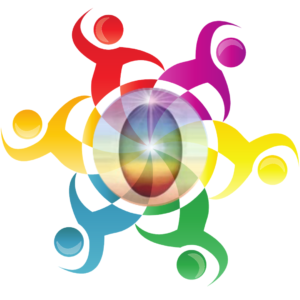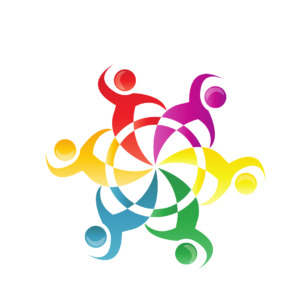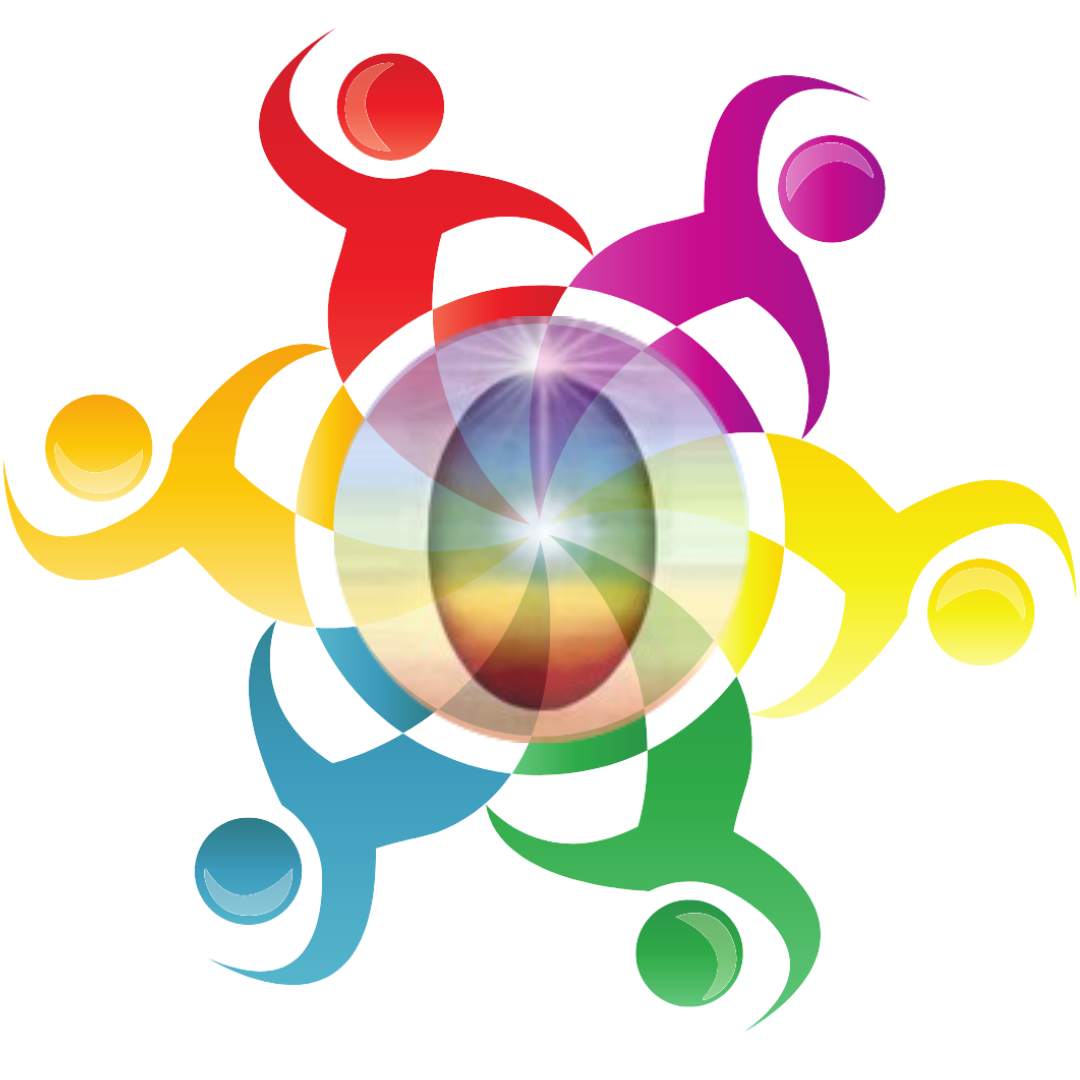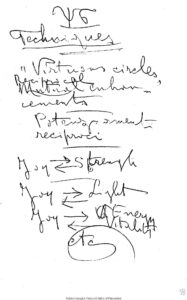“Psychosynthesis is a vital idea and it is bound to become a centre of attraction of people so as to form a living Group.” ~Roberto Assagioli
Facilitated Peer Group
Supervision-Consultation Program for Psychosynthesis Coaches
Empowering professional growth and development in supportive community.
The Program
Peer Group Supervision and Consultation for Psychosynthesis Coaches

This facilitated peer group supervision and consultation program for psychosynthesis coaches is designed in two-parts with each part containing 4 monthly meetings of 2-hours each – with engagement between meetings on Slack.
This program is focused on the practitioner aspect of a psychosynthesis coaching practice and is designed to:
√ Create an empowered process for professional coaching practice support, consultation and learning
√ Offer experiences, tools and resources to both develop your skills as a coach and to participate effectively in peer-to-peer supervision/consultation
√ Build Confidence and provide a forum for new ideas, coaching tools, resources, approaches, and professional growth
√ Be an accountability space to support ongoing learning and experience in service of professional development goals
√ Enhance collaboration and reduce the experience of isolation for coaches in solo or small group practices and help you build resource and referral networks, including individual supervision for self-referral
Additionally, you will:
√ Gain experience and tools to continue or create your own peer-to-peer support
√ Have a foundation to pursue opportunities for continued facilitated peer support and/or advanced supervision training
√ Become more skilled in collaborative peer leadership to build the psychosynthesis supervision models for future SCSF and initiatives at the soon to be launched, Psychosynthesis Institute for Social Develoment and Innovation programs
√ Have the option to bundle this program which is about the “practice of practice”, with our Trying on Your Dream program, which focuses on the “business of practice”
Psychosynthesis Coach Peer Supervision and Consultation Training
Program Details
This Program is Ideal for
- Psychosynthesis coaches just entering into practice seeking tools, resources, practice and support as a practitioner
- Experienced psychosynthesis coaches who seek an opportunity to review the basics and explore more advanced aspects of practice in a supportive, peer community
- Any psychosynthesis coach who wants to build confidence and experience in the peer supervision-consultation process
- Coaches seeking opportunities to grow with us and inform the future as we develop, pilot and offer new initiatives
- Fulfillment of one of the pre-requisites to be a coach / coach intern with PLC Part 1 Students as an Act of Will Coach following participation in both Part 1 and Part 2*
* Participation in SCSF sponsored supervision/consultation programs is one of the pre-requisites for student-coach matches (additional requirements are a minimum PLC, attendance in a SCSF sponsored supervision program, recommendation from a supervisor and at least one individual supervision with a SCSF supervisor). Availability of matches are dependent on the size of the cohort and best-fit between Coach and Student and are not guaranteed.
Framework & Resources
Participation in just Part 1 – or both Part 1 & Part 2 – includes
- Peer supervision-consultation frameworks for psychosynthesis coaches:
+ integrating psychosynthesis theory, maps and tools (act of will as a coaching model and the 7 core experiences as an orientations for our work with clients)
+ the development of an IDEAL model for cultural competency within a co-active coaching orientation
+ protecting the process, the client and the coach
- Resources to support learning, professional growth and collaboration
- An online communication and community platform via Slack, for ongoing peer-consultation and support
During your participation in this program and/or continuing with a future affiliated SCSF supervision programs, we offer you:
√ Inclusion of your Coach Profile on Synthesis Center San Francisco (SCSF) and Psychosynthesis Coach Training websites
√ Professional verification for CCE BCC applications: Coaching Hours Verification and Professional Endorsement
√ Continuing Education Hours for CCE
Part 1: Session 1
We will be utilizing a facilitator model designed to empower participants to build confidence and skill for shared leadership in peer supervision-consultation.
The facilitator’s role is to guide, offer perspective, share resources and tools, supporting the unfolding. During the course of the program’s two parts, the peer group will define individual and collective interests and needs which may result in adjustments and/or additions to program agenda, content and flow.
Session 1 – Overview & Introduction
- Intro and Overview to the program
- Definition and purpose of peer supervision-consultation; identifying the benefits and challenges of peer supervision; key Principles of peer supervision-consultation from a psychosynthesis lens
- Establishing confidentiality within the peer supervision group and elements to fostering a non-judgmental and supportive environment
- Roles and Responsibilities in Facilitated Peer Supervision-Consultation, including: role of the facilitator, role of peers to one another, role of mentors, role of individual supervision
- Promoting accountability, feedback and commitment to the process
- Managing challenges and differences of approach / opinion /orientation to practice
- Structuring Peer Supervision Sessions, including: building our agenda and session objectives, different models and approaches, effective communication internally and externally, providing guidance and giving feedback, evaluation
- Ethical Considerations in Peer Supervision
- Developing cultural competencies and the emerging IDEAL model for SCSF
Part 1: Sessions 2-4
Sessions 2-4: Topics/Themes
These are open to change and refinement as defined by group needs – some topics/themes may be explored more fully between meetings via Slack Chat
Session 2:
√ Intake & Contracts: Formats, Forms and Scripts
√ Assessing Will Alignment: Questions to explore client readiness for coaching
√ “Yay” or “Nay”: Setting up a Coaching Engagement or Referring for a Better Fit
Session 3:
√ Act of Will Coaching Framework: A Dynamic Spiral Dance
√ Asking Powerful Questions: to Explore Purpose and Guide Focus
√ Setting Goals & Tracking Progress: Note-taking, between session “Joy-work” for client and coach
Session 4:
√ Core Coaching Competencies: Developing Cultural Competency through an IDEAL lens, Tools and Techniques for acknowledging Presence
√ Tools for Guiding the Journey: Supporting Deliberation, Choice, Affirmation & Planning
√ Care for the Coach: Professional Networks, Professional Development Planning, Self Renewal

Part 2: Overview – Topics and Themes
We will continue to utilize a facilitator model designed to empower participants to build confidence and skill for shared leadership in peer supervision-consultation. The facilitator will continue to offer perspective, share resources and tools, and support the unfolding – with the peer group defining individual and collective interests and needs during the course of the program. Participation in Part 1 is a pre-requisite for Part 2.
Topics and themes for Part 2 will be selected by peer members based on group and individual interests and needs.
We will also offer 1 – 2 Mentor/Master Class Sessions with an experienced guest supervisor.
Topics/themes may also be explored and resources shared between meetings via Slack Chat.
Part 2 Proposed Topics/Themes may include:
+
+ Psychological / Mental Health First Aid – Clients in Crisis
+ Guiding Transition – beginnings, endings, and the space in-between
+ Somatic Experience for the Coach
+ Subpersonality Work
+ Guided Visualization
+ Working with Psychological Functions
+ Guiding a specific stage of the act of will
+ Ethical Considerations & Dilemmas in Practice
+ Cultural Competencies & the IDEAL model: Inclusion, Diversity, Equity, Learning Innovation for Psychosynthesis and Psychosynthesis Coaching

Program Flow for Parts 1 & 2
Session Agenda Flow Framework
This agenda format will be utilized as a flexible framework for sessions 2-4 in Part 1 and 1-4 in Part 2
Each peer supervision-consultation session will be 2 hours.
Tune in – Grounding
Updates / Check in / Announcements
Theme / Topic for day
Presentation / Discussion on Topic/Themes identified for each session
Peer Spotlight
+ One participant shares a challenge, professional goal, resource or issue
+ Facilitated discussion to provide support, feedback, and suggestions
Case Study
+ One designated participant will present a case study or detailed practice issue for focused attention
+ Peers ask clarifying questions to gather more information and engage in facilitated brainstorming for possible ideas, strategies, solutions, resources
+ Summary by presenter of key takeaways and action steps
Group Discussion or Observation/Practice Session
+ We will explore either a 1) specific topic/theme or a practice question introduced for group discussion, and/or 2) open conversations where peers can share their related current questions, discoveries, needs, about coaching practice issues or topics.
or
+ Engage in observation/practice around the meeting’s theme/topic
Goal Setting and Accountability
+ Review any goals set in the previous meeting by each member provide updates on their progress and achievements, including challenges, requests for support, new discoveries, accomplishments.
+ Each member identifies a task, activity, goal that they want to be their focus for the upcoming month – with a specific action step
+ Between meetings participants can check in, share and add resources on the Slack platform for peer supervision-consultation.
Closing
+ Key takeaways and action steps discussed in the meeting
+ Celebrate with gratitude and appreciation, our shared contributions and support
Session Dates, Enrollment and Tuition Information
Fall 2023/Winter 2024 Session Options
Peer group will be a minimum of 6 participants & a maximum of 8
Part 1 |
Part 2 |
|
Tuesdays – 2 hours + September 12, 2023 + October 31, 2023 + November 14, 2023 + December 5, 2023 Beginning at: 9 am PT; 12noon ET; 4 pm UTC/GMT during Daylight Savings Time; 5 pm UTC/GMT during Standard Time
|
Tuesdays – 2 hours + January 9, 2023 + February 6, 2023 + March 12, 2023 + April 9, 2023 Beginning at: 9 am PT; 12noon ET; 4 pm UTC/GMT during Daylight Savings Time; 5 pm UTC/GMT during Standard Time
|
New sessions will be added in 2024. And, if you are interested in participating in this program in 2023/2024, but are not able to attend the scheduled session days and/or times, let us know and we will work with you and others to create and offer a custom schedule for a minimum group of 6 participants.
info@psychosynthesiscoachtraining.com
About our Virtuous Circle Tuition Model

“Virtuous circles”.
Reciprocal enhancements. Mutual upgrades.
Joy -><-Strength Joy -><- Light
Joy -><- Energy Vitality” etc
~ Roberto Assagioli Archivo Assagioli
To ensure we continue to build sustainability and accessibility for our programs and services, we utilize a “Virtuous Circle” pay-it-forward sliding scale tuition model for program tuition.
We ask each participant to choose the tuition option that works best with your financial capacity and economic circumstances – there is no additional information required for tuition tier choice.
Tuition Tiers
|
Pay-it-Forward $ 280 full program Parts 1 & 2 8 sessions (includes 2 mentor /master sessions in Part 2) or 6 installments of $48.25 |
Standard $250 full program Parts 1 & 2 8 sessions (includes 2 mentor /master sessions in Part 2) or 6 installments of $44.25 |
Income Accessible $ 230 full program Parts 1 & 2 8 sessions (includes 2 mentor /master sessions in Part 2) or 6 installments of $40.25 |
To register : info@psychosynthesiscoachtraining.com
A Brief History of the SCSF Supervision for Coaches Programs
and about the Facilitator

About Supervision at SCSF and Susan Jewkes Allen
What stands out most, and has endured over time, was the ‘magic’ of connection and growth in peer supervision / consultation.
In my early career as a clinician at a teaching hospital, and as a university instructor and practicum supervisor there were a number of opportunities for professional development and supervision. What stands out most, and has endured over time, was the ‘magic’ of connection and growth in peer supervision / consultation. Some of the professional and personal relationships that were formed in both clinical and inter-disciplinary group supervision continued for decades.
New models along with best practices from past experience supported my continued development and supervision as I transitioned into coaching – and inspires me to share these with a new generation of coaches.
Transitioning back to the US and into coaching, more than 15 years ago, was a big, exciting, scary, and mostly wonderful experience for me. While my peer support community was not coaching oriented, and none lived in the Bay Area, these peers continued to offer support and wisdom. I also pursued a number of new peer relationships and ways to connect and network professionally. New models along with best practices from past experience supported my continued development and supervision as a coach – and inspires me to share these with a new generation of coaches.
At SCSF the continuing vision has been to support and mentor the next generation of psychosynthesis coaches.
In founding SCSF, the continuing vision has been to support and mentor the next generation of psychosynthesis coaches. To this end a small team began to work on ways to realize the vision of building resources, support and community for psychosynthesis coaches and ways to bring our work more fully into the world.
My vision of developing a psychosynthesis model for coaching along the act of will began to take form with a pilot for Psychosynthesis Group Supervision with Didi Firman and Karen Randall and a small group of recent PLC graduates.
Continue to hold the vision, build and refine our work amidst the uncertainty of the times and limited resources.
Our Psychosynthesis Coaching Practice Group Pilot was impacted by a variety of factors, not least of which was COVID. It was time to pause and re-orient while also continuing to hold the vision, build and refine the work amidst the uncertainty of the time and limited resources.
In these past three+ years we have re-visioned our coach training to include the experience of personal psychosynthesis along the act of will (formerly Psychosynthesis for Life (P4L). This Part 1 of our CCE accredited coach training, now includes a 3-session work-with-a-psychosynthesis-coach component.
How we can realize Roberto Assagioli’s vision of working for a better world through the synthesis of personal, inter-personal, group and social dynamics.
Now, as we enter a new cycle in this work and the larger world, during rapid technological and social change, we are continuing to renovate, refine, build and explore how we can realize Roberto Assagioli’s vision of working for a better world through the synthesis of personal, inter-personal, group and social dynamics.
It is my hope that you, too, experience the call to join us in collaboration along the unfolding journey.
Roberto Assagioli’s words continue to inspire and inform the way forward:
“Let us realize how great would be the results and how radical would be the changes
that a widespread use of the will would bring about.
Its individual use would greatly foster and facilitate the selfactualization and the SELF-realization
which are the basic needs – even if not recognized – of every human being, of each of us.”
Contact Us for More Information & To Register
info@psychosynthesiscoachtraining.com
Learn more about our upcoming: